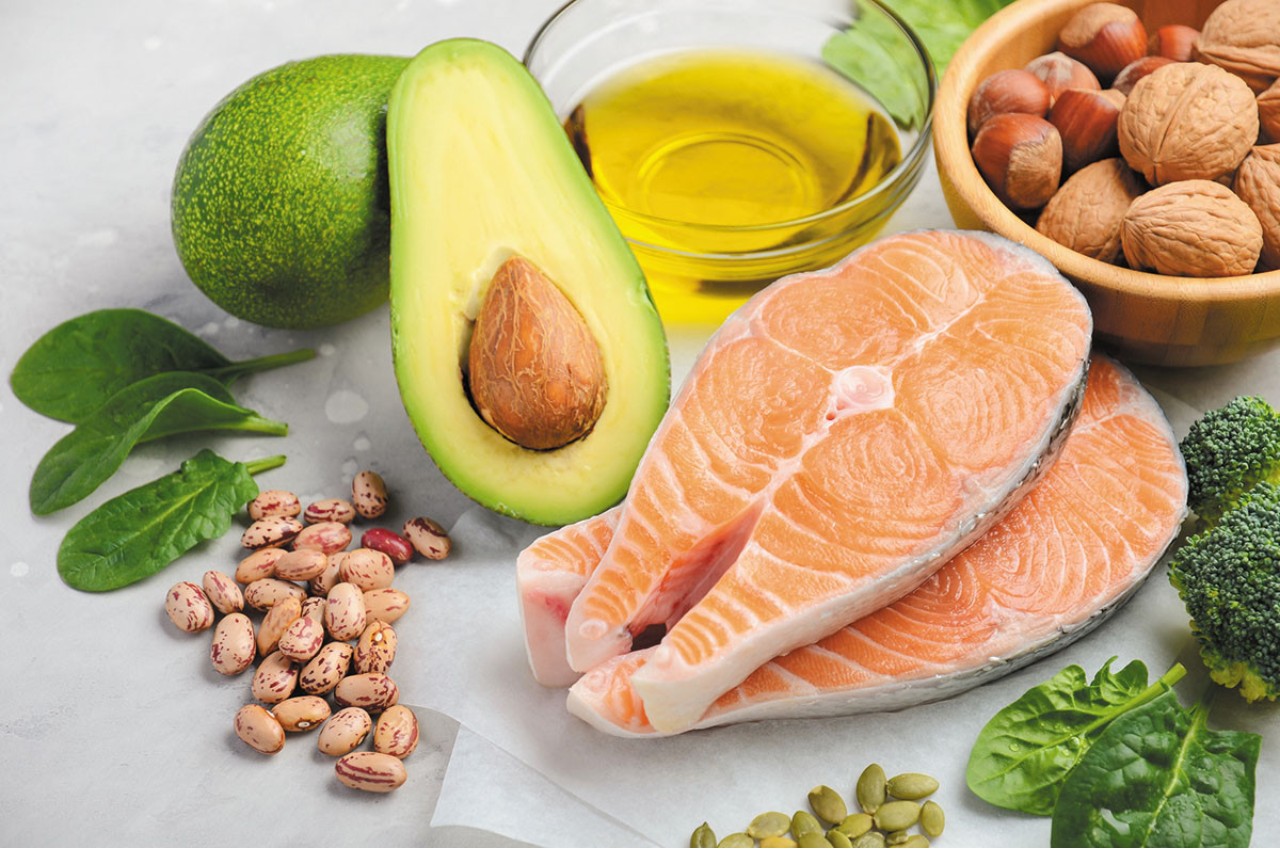
Fats are an essential macronutrient, providing energy, insulating the body, and aiding in the absorption of vitamins and minerals. While fats have received a bad rap in the past, it is important to understand that not all fats are created equal. In fact, there is a wide range of fascinating facts about fats that may surprise you. From their role in brain health to their impact on weight management, fats play a critical role in our overall well-being. In this article, we will explore 12 captivating facts about fats that will change the way you think about this misunderstood nutrient. So, buckle up and get ready to dive into the fascinating world of fats!
Key Takeaways:
- Healthy fats, like those in avocados and nuts, are essential for brain health and vitamin absorption. They don’t directly cause weight gain, but moderation is key.
- Not all fats are created equal. While some fats are good for us, too much saturated and trans fats can lead to health problems. Choose healthy fats for a balanced diet.
Fat is an essential nutrient
Fat is one of the three main macronutrients that our bodies need to function properly. It provides us with energy, aids in the absorption of vitamins, and helps maintain healthy skin and hair.
There are different types of fats
Fats can be classified into unsaturated fats, saturated fats, and trans fats. Unsaturated fats, such as those found in avocados and nuts, are considered healthy fats, while saturated fats, found in animal products, should be consumed in moderation. Trans fats, often found in processed foods, are the unhealthiest type of fat.
Fats are more calorie-dense than other nutrients
Fats contain more calories per gram compared to carbohydrates and proteins. While fats are an important part of a balanced diet, excessive intake can lead to weight gain. Moderation is key when it comes to consuming fats.
Fats are crucial for brain health
The human brain is made up of approximately 60% fat. Healthy fats, like omega-3 fatty acids found in fish and nuts, play a vital role in brain development and function.
Fat is essential for vitamin absorption
Fat-soluble vitamins, such as vitamins A, D, E, and K, require fat for proper absorption in the body. Including healthy fats in your diet can help ensure that you get the maximum benefit from these important vitamins.
Eating fat does not necessarily make you fat
Contrary to popular belief, consuming healthy fats in moderation does not directly lead to weight gain. It is the excessive consumption of calories, regardless of the source, that contributes to weight gain.
Fat provides insulation and protection
Fats play a crucial role in insulating our body and protecting our organs. Adipose tissue, also known as body fat, helps regulate body temperature and cushions our organs, providing them with a protective layer.
Fats contribute to hormone production
Some hormones, such as estrogen and testosterone, are derived from cholesterol, a type of fat. These hormones play essential roles in various bodily functions, including reproductive health.
Fats enhance the flavor of food
Fats add richness and depth to the taste of food. They help distribute and intensify flavors, making dishes more enjoyable. This is why many chefs and cooks incorporate fat into their culinary creations.
Low-fat does not always mean healthier
Many low-fat or fat-free products often compensate for the lack of fat by adding sugar or artificial ingredients. These can be less healthy than their full-fat counterparts. It’s important to read labels and choose whole, unprocessed foods whenever possible.
Fats provide a long-lasting energy source
Fat is the body’s most concentrated and efficient form of energy storage. It helps sustain energy levels over an extended period, making it a valuable fuel source during endurance activities.
Not all fats are created equal
While some fats are beneficial to our health, others can be harmful. Consuming too much saturated and trans fats can increase the risk of heart disease and other health problems. It’s important to make informed choices and prioritize healthy fats in our diet.
Conclusion
In conclusion, fats are a fascinating and important topic in the world of nutrition and chemistry. Despite their bad reputation, fats play crucial roles in our bodies and have many benefits. From providing energy and insulation, to aiding in nutrient absorption and hormone production, fats are essential for our overall health and well-being.
Understanding the different types of fats and their effects on our bodies is important for making informed dietary choices. By incorporating healthy fats like avocados, nuts, and olive oil into our diets, and avoiding or limiting unhealthy trans fats, we can maintain a balanced and nutritious eating plan.
Remember, moderation is key when it comes to fats. It’s important to strike a balance and consume fats in reasonable quantities for optimal health. So embrace the wonders of fats and enjoy them responsibly!
FAQs
1. Are all fats bad for you?
No, not all fats are bad for you. Some fats, like unsaturated fats, are actually essential for maintaining good health. It’s the unhealthy trans fats and excessive consumption of saturated fats that should be limited or avoided.
2. Can fats help with weight loss?
Contrary to popular belief, fats can aid in weight loss when consumed in moderation. Healthy fats can increase satiety and help control cravings, leading to a reduced overall calorie intake.
3. Are all saturated fats unhealthy?
Although saturated fats have been associated with an increased risk of certain health conditions, recent research suggests that not all saturated fats are created equal. Some sources of saturated fats, such as coconut oil, may actually have potential health benefits.
4. How can I incorporate healthy fats into my diet?
You can incorporate healthy fats into your diet by consuming foods like avocados, nuts, seeds, fatty fish, and olive oil. These can be added to salads, smoothies, or used as cooking oils for a nutritious boost.
5. Can I completely eliminate fats from my diet?
No, it’s not advisable to completely eliminate fats from your diet. As mentioned earlier, fats play important roles in the body and are necessary for overall health. Instead, focus on choosing healthier sources of fats and consuming them in moderation.
Fats play a vital role in our diet, but misconceptions abound. If you're curious about cheese without the fat, oat milk's nutritional profile, or fat-free dairy, keep reading. Explore our articles on non-fat cheese nutrition, Oatly low-fat facts, and Fairlife fat-free milk's nutrient breakdown. Arm yourself with knowledge to make informed choices for your health and taste buds.
Was this page helpful?
Our commitment to delivering trustworthy and engaging content is at the heart of what we do. Each fact on our site is contributed by real users like you, bringing a wealth of diverse insights and information. To ensure the highest standards of accuracy and reliability, our dedicated editors meticulously review each submission. This process guarantees that the facts we share are not only fascinating but also credible. Trust in our commitment to quality and authenticity as you explore and learn with us.


